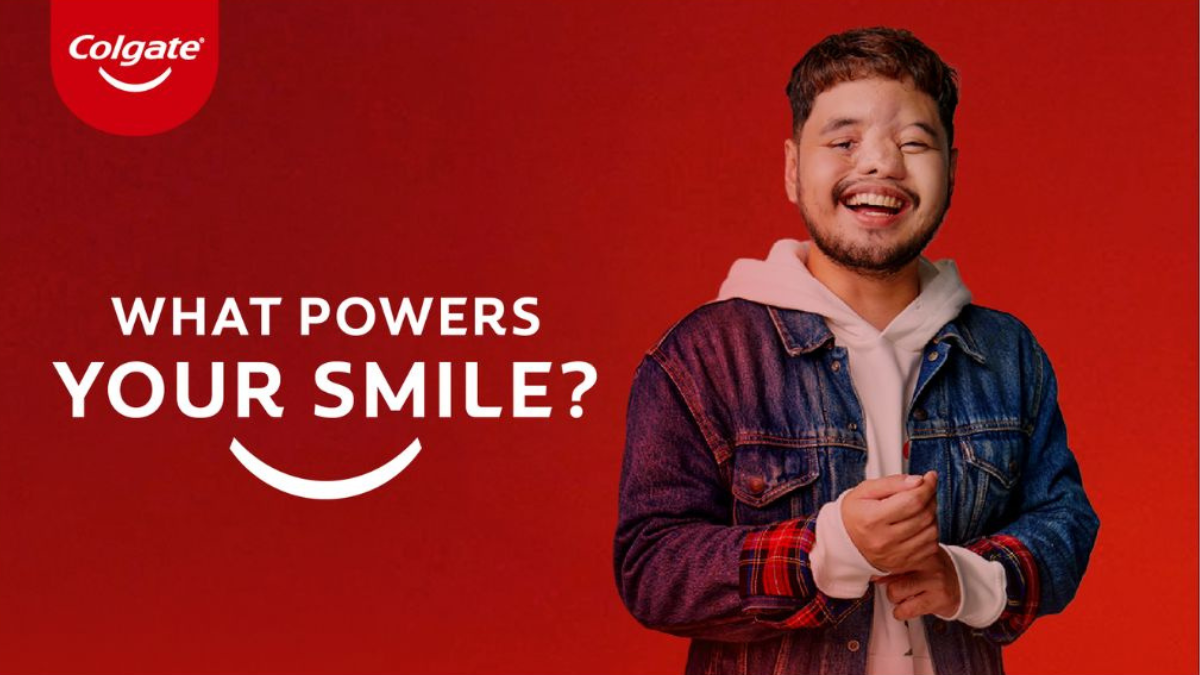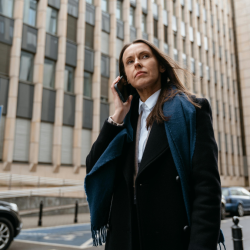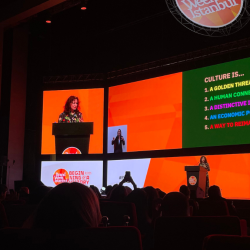Thanks for making the time to chat, Yves. Let’s start with something fun — what’s your favourite part of being a marketer today?

The rise of creativity. After years of talking about digital transformation, we’ve returned to marketing’s key topic: creativity! Recent numbers from the UK advertising market revealed that only 4% of the ads are liked and 7% disliked. The worrisome number here is the 89% that are forgotten. To put it into perspective, for a roughly £20 billion advertising market, around £18 million is wasted.
It’s high time we talk about creativity again. It’s commonly accepted that authentic purpose drives sales, and I am happy that marketing is once again becoming a science of genuinely improving people’s lives. For too long, we’ve thought of marketing as selling at any cost; a cost which ranges from exaggeration to flogging products people do not really need. This is changing as people do not buy brands any longer, but buy into them. And that makes me truly happy.
You’ve been at Colgate-Palmolive since 1999 and now helm the brand’s creative transformation globally. Through your tenure, what’s changed and what valuable lessons are still worth their salt in terms of your role today? Has there been a specific project that has shaped your approach to strategic planning and brand development?
The biggest came from the digital revolution. Before the digital era, most brands were on a push strategy, only activating a few touch points. As marketers, our job was to launch new, good products, make sure we developed impactful advertising campaigns targeting almost everybody on TV and building strong visibility in brick and mortar stores. When the internet came along, everything changed. We had to learn to merge the physical and digital worlds to become omni-channel. Consumers took control of our relationship — suddenly, they had the power to decide when, where and how they wanted to exchange with us. We were forced to switch from push to always-on pull communication strategies. Of course, thanks to the help of data, we became significantly better at targeting individuals and creating far more personalised communications.
Lastly, consumers stopped buying brands and started buying into brands. The importance of emotion in communication has become even stronger, with the need to develop higher-order campaigns displaying brands’ authentic purpose.
A few years ago, I developed Colgate’s first higher order campaign — Smile Strong, which is all about bringing to life Colgate’s purpose that everybody deserves a future they can smile about. This campaign transformed my point of view about marketing. This is when I really started to appreciate the central role of purpose in making our brands part of the culture. And to be part of the culture is what breathes life into brands — the need to be at the edge of local cultures if you want society to talk about your work. The most powerful advertising is the kind people love, hate or remember.
You’ve also worked in a myriad of countries, including France, New York, Poland, Switzerland, Hong Kong and now Singapore. How do you balance consistency in brand messaging and values with cultural relevance and localisation? Can you share an example of a campaign that successfully leveraged cultural diversity and created a unified brand experience across multiple countries?
The foundations of brands should be global. Each company needs one global brand promise with only one universal human truth; one set of assets, and one consistent personality across all countries. It’s the way you express your point of view (your communication assets) that must adapt to the local culture, and this must be built on powerful local insights.
Colgate exists to fight for the right of any individual on this planet to smile freely. But the reasons why people do not smile freely vary from one region to the next. In some countries, people hide their smiles because the diktat of the beauty industry decides what constitutes beauty. It’s so strongly engrained in the culture that people don’t dare smile, unless their teeth are perfectly aligned or the purest white. In other countries, women are not allowed to smile in society because it can be interpreted as a sign of flirting. The act of smiling can have some serious consequences on their social image and on their life, the way they’re perceived and judged by others.
You need different executions of your campaign to tackle those insights, but the idea remains the same: the fact that everybody and anybody should be free to smile whatever your teeth, age, gender, location or your income.
Colgate-Palmolive was recently elected as one of the most ethical companies on the planet. The company has committed to a zero-plastic approach and 100% recyclable packing for all of its products. What sustainability-focused initiatives have resonated deeply with consumers in the APAC region?
Colgate has some very strong global sustainability and environmental objectives. We consider it our duty and have been working towards these goals for years. We know we’re not perfect, but we’re doing our best to be better everyday. And we want anything we do to have an authentic impact, on both the society and the planet.
This is why, a few years ago, when we developed the first recyclable plastic tube (after years of research, during which we spent millions of dollars in R&D) we decided to do three things: Share the technology with any company producing tubes, even our competitors; Maximise the impact of our invention, partnering with the recycling industry to help them recycle our tube, and Educate consumers regarding the act of recycling, its importance, how to do it etc.
This is how our Share the Answers campaign in Australia was born. It was a first of its kind for us and did extremely well in terms of engagement of Australians, helping to drive awareness of our tube and promote the act of recycling in the country. We are now in the process of rolling-out this campaign to other countries in the region, which should happen between now and the first half of next year.
Let’s discuss two campaigns: ‘Smile Out Loud’ and ‘Smile Strong’. The APAC region is known for its diverse beauty standards and skincare rituals. What challenges did you and your team face developing marketing strategies that embrace and celebrate these diverse perceptions of beauty in your personal care products? What lessons were learned?
This was not an easy project, but it turned out to be a very successful one! We faced two main challenges: the first was internal, as those campaigns were quite disruptive vs. the usual and more traditional approach for Colgate’s advertising at the time. Instead of shooting people with perfect smiles brushing their teeth in front of a bathroom mirror, or dentists telling them they’re doing a good job, we decided to display real people with real smiles, defying the standards of beauty with real stories of optimism.
Change always makes people uncomfortable, as there is always a dimension of risk associated with it. We managed those internal concerns with a combination of teaching. We explained why we were pushing for this new approach, the strong cultural insights we had identified, the need to build our purpose and included a little bit of testing, to reassure people of the potential of those campaigns.
The second challenge was external: as some of our models had to face some trolling in social media. I am especially thinking of Suzie Wadee (a Thaï influencer and a fantastic character in our Smile Out Loud campaign), who became the target of a few people making fun of the gap between her front teeth.
Those challenges proved to us that we were up to something big, as it’s not ordinary that people talk about toothpaste advertising on social media. Not only did we decide to keep going with the campaign, but it gave us some even bigger ideas that we’re currently working on. Stay tuned, they’ll be on-air soon.
Looking forward, what emerging trends or innovations do you see as potential catalysts for the next phase of purpose-led marketing in the Asia-Pacific region, and how is Colgate-Palmolive preparing to embrace these opportunities?
Mental health has been an issue for years and is not going away. I would even say it has been made bigger by the Covid crisis. Diversity is another topic that keeps growing, especially the role played by women in Asian societies. As women are increasingly penetrating the workforce and becoming more and more independent, this is creating lots of cultural tension in traditional societies. And of course, sustainability: Asia is one of the most impacted regions on the planet in terms of global warming and plastic pollution. This is an issue impacting the lives of tens of millions of people daily, especially those with the lowest incomes.
We have started to tackle those issues both internally, evolving our company’s culture with a new set of values that we want our employees to display: care, courage and inclusiveness. And we’ve made those issues the centre of our advertising campaigns. We’ve developed the Smile Strong campaign to promote diversity in Asia. As mentioned, we’ve launched the world’s first recyclable tube and have shared this tech with other companies, including our competitors. Sustainability is too important to only be a way of selling more products.
We’re also partnering with local Public Health authorities in the Philippines to eradicate cavities through our Bright Smile, Bright Future program. We go to schools to educate young children on oral health, and hope to roll this out to other countries in the region. We do a lot and we will continue to do more, as we truly believe everyone on this planet deserves a future they can smile about.
Featured image: Smile Strong / Colgate



























